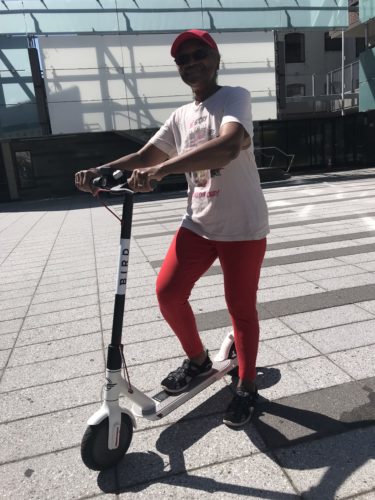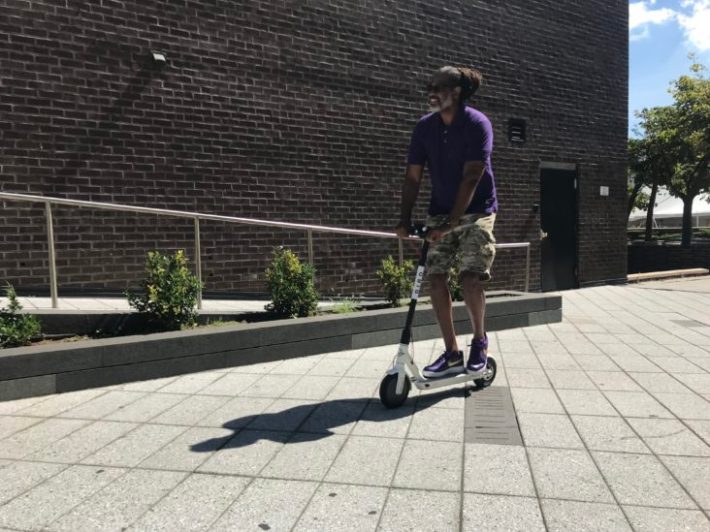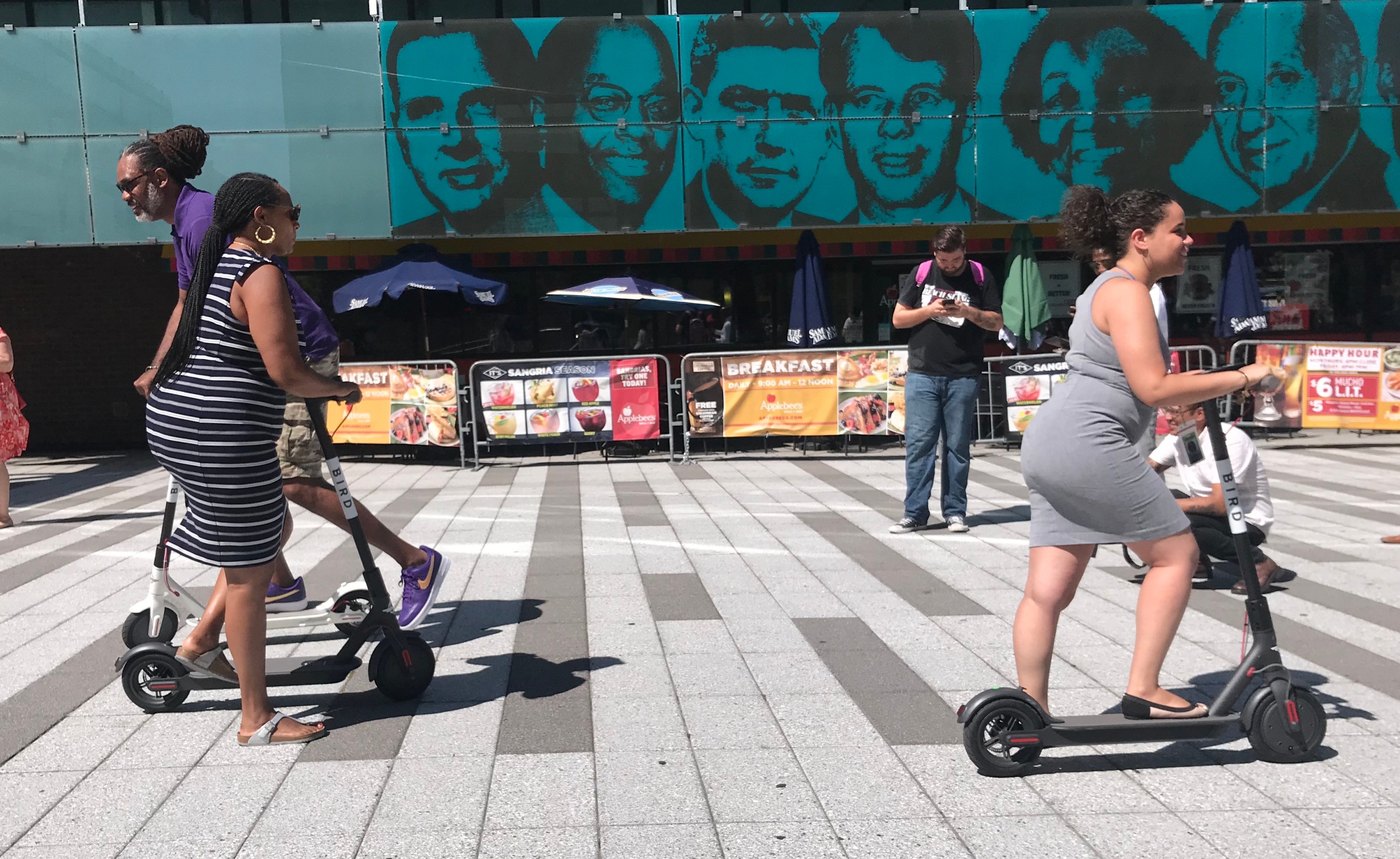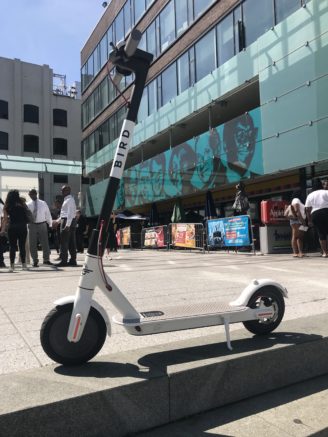It's inevitable that e-scooters will be hitting the streets of New York, maybe even before the end of the year.
And it's equally inevitable that scooter riders will die without proper protection by the city.
I was reminded of that as I watched Beatrice Jackson — all of 71 years young — tool around on a Bird scooter in Bedford-Stuyvesant on Thursday morning. Actually, Jackson — locals call her Mama B — reminded me herself.
"I could see doing this; I liked riding it," said Jackson. "But I'm a safety person, so I'd need a dedicated bike lane. And when I say 'dedicated bike lane,' I mean a DEDICATED bike lane, with cement, not just painted lines on a street."

When a 71-year-old woman with bad knees tells you she would ride an electric scooter in the street if there were more protected bike lanes, it's pretty clear that the fake drama over scooters that has been playing out all over the country is over. Scooters are here. But the roads aren't ready.
Bird claims that's where it comes in. The company has pledged to set aside $1 per device per day in a fund that will be given to cities to "build more bike lanes." It has asked the other main scooter companies to sign the pledge, but none has so far.
I told Bird's Director of Public Policy Matthew Kopko that New Yorkers don't like outside companies — especially newbie tech companies with a lot more in venture capital than they have in street cred — pushing city officials around (or sticking their nose in cash). And I reminded him that every protected bike lane proposal unveiled by the Department of Transportation gets sniffed by community boards like it's a two-day-old fish that they are deciding whether to serve or throw in the trash.
"That's why we want to work with cities," he said. "That's why we brought on former National Highway Traffic Safety Administration head David Strickland as a consultant. We want to work with cities to create funding and technical assistance. We are creating more demand for bike lanes and we focus on funding streams for cities. These are low-speed, small footprint vehicles."
Kopko presided over Bird's coming out party on Thursday in Bed-Stuy, letting members of the public try out the front-wheel drive, throttle-powered two-wheelers all around Restoration Plaza. Bird, and its competitor Lime, already have friends in the City Council, what with Rafael Espinal and Ydanis Rodriguez readying a bill to legalize e-scooters in New York.
On Thursday, Council Member Robert Cornegy joined the fight — on Bird's side.

"There's a narrative that communities of color don't want to be at the vanguard of technology and we want to change that narrative," he said. "There's a narrative these ideas speed gentrification, but I disagree. We need to be at the forefront of technology."
Cornegy, who is 6-foot-7, also rode a Bird scooter and said he was impressed.
"I had my concerns, but it was awesome," he said. "Beatrice wanted to race me. If it can be used by seniors, then it's not just 18 year olds."
(Full disclosure: I found the Bird scooter twitchy and enervating. I ride my bike everywhere, all day and night, and without the stabilizing effect of pedaling, I felt like my Bird scooter was always one tiny oversteer away from flipping. But that's just me; Mama B liked it, so who am I to argue?)
I told Cornegy that if he wants scooters for his community, he'll need to fight for more bike lanes rather than allow residents to steamroll the city, as they did two years ago on Clinton Avenue. There are currently no protected bike lanes in Bed-Stuy at all.
"I will stand up for more protected bike lanes," he vowed. "I ride my bike every day. Residents are becoming more conscious of safety."
They better.







